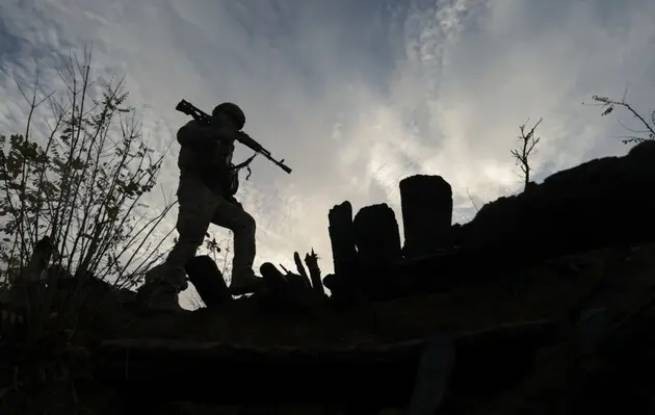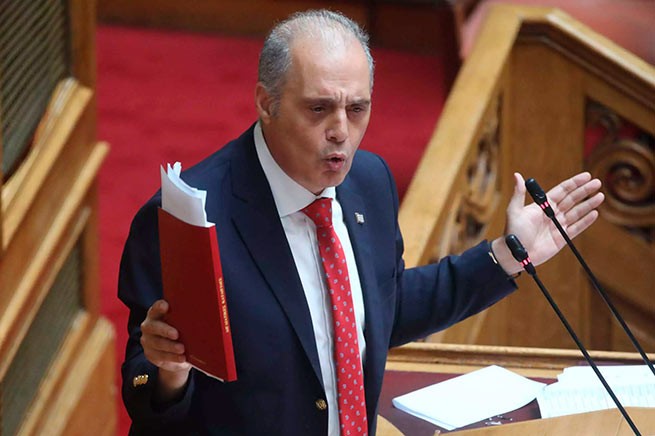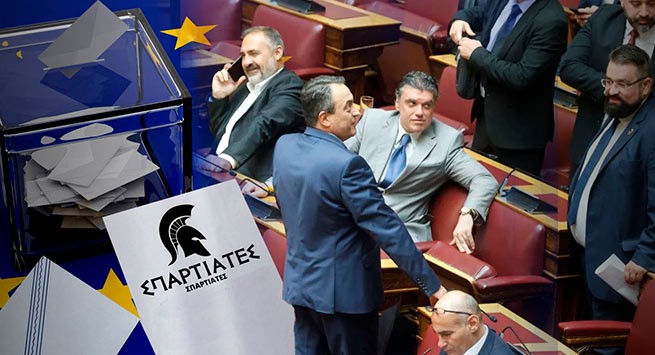German Foreign Minister Annalena Burbock gave an exclusive interview to Deutsche Welle, explaining how Russian actions in Ukraine differ from American ones in Iraq, whether the sanctions imposed against the Russian Federation work, and why Germany helps Ukraine less than Poland, for example. She also talked about the recent statement by Russian Foreign Minister Lavrov about “expanding the geography of the special operation.”
Deutsche Welle: Ms. Burbock, let’s start with the war in Ukraine, since this topic played a key role in the development of the new German national security strategy. Your Russian colleague Sergey Lavrov recently stated that Russia is “expanding the geography of the special operation”, shifting its attention from Donetsk and Lugansk to Kharkov and the southern regions. It seems that the assumption that Russia is seeking to annex these territories, and perhaps even completely cut off Ukraine from the Black Sea, is confirmed. What will be your reaction?
Annalena Burbock: It will be the same as the last months. We support Ukraine, not only showing solidarity with it, not only saying daily that this (invasion) is a fundamental violation of international law by Russia, but also providing Ukrainians with military support so that they can independently defend their country, their territory. Russia constantly resorts to different arguments. This time they say it’s because of Western military support. But they have led attacks on Kyiv and other parts of Ukraine before. It’s just new Russian propaganda.
Deutsche Welle: And yet the German government is accused of not doing enough to help Ukraine, despite promises of a radical review of Berlin’s attitude to security issues. According to the Institute for the World Economy in Kiel (Kiel Institute for the World Economy, IfW Kiel), in terms of arms supplies to Ukraine, Germany is in sixth place after the USA, Poland, Great Britain, Canada and Norway. Do you think that Germany’s responsibility to Ukraine is less than in Norway?
Annalena Burbock: These figures are not familiar to me yet. There are different data: if you count money and if you count the intensity of arms supplies. But this is not a race for a place in the rankings. We are talking about the joint support of Ukraine by the entire international community of NATO member countries. And that is why we combine our support with that of others, because in some categories we do not have everything in stock. For example, together with the Netherlands we supply howitzers. Part of the reason we try to get ammunition from other countries is because we don’t have the right ones.
I think this is the advantage of our support: we provide it not individually, but as a united force. Everyone should look to see where more can be done. Our problem, like that of many European states, is that not everything that Ukraine needs is in stocks. Therefore, we will send to Ukraine, for example, IRIS-T, one of the most modern air defense systems, which is now only at the production stage and, I hope, will be ready at the end of summer. And so we are always checking what else can be done to support Ukraine even more.
Deutsche Welle: You say you don’t need to look at the ratings. But still, Germany is criticized, especially by its Eastern European neighbors and Ukraine itself, for lagging behind other countries in military support for Kyiv. Another indicator calculated by IfW Kiel is the financial aid in terms of its own GDP. Here Germany is in 13th place.
I can only repeat my words. We are looking at different types of support: what we can do in matters of investigations in demining cities. We provide medical assistance, accept refugees. And yes, if there are things where we can do more with direct financial grants that we are discussing now, we are considering that too (…).
And when I was recently in Kyiv, and when the chancellor was there, the Ukrainians said: “Thank you for your support.” Obviously, during the war, everything should happen much faster. That is why we discussed why some deliveries take longer (…).
Deutsche Welle: The war showed how great Germany’s dependence on Russian gas is. And what about the dependence of the German economy on China, which can also play a cruel joke on the country? How seriously do you take the need to reduce it?
Very seriously. Otherwise, there would be no point in developing a new strategy in this regard. We are carefully studying the industries where we are dependent (on other states. – Ed.). But, as we see in the example of Russia, some things cannot be changed immediately. Many European countries are experiencing similar problems. For example, to switch to electric vehicles to achieve climate goals, we need batteries. We do not have our own production of batteries for electric vehicles. Now we are starting to produce it, but in terms of all materials used in batteries, we are 98% dependent on other countries, and this applies to all electric vehicles in Europe.
Therefore, our strategy towards China is not an isolated German strategy. After all, we are an integrated internal market, so we are developing it in coordination with our European partners, with the European Commission, which also made it clear that China is not only a competitor for us on some economic issues, but also a partner in combating the climate crisis, and also a systemic rival.
And since this is a systemic rival, we must make it clear that no one can blackmail us, as was the case with our dependence on Russia. This is the basis of our new strategy for China: to work together where possible, but to have a sovereign European strategy for independence in critical infrastructure, especially within our foreign policy.
Deutsche Welle: Is, in your opinion, the activity of German automotive investors in China is excessive?
Obviously, we must consider in what areas our addiction manifests itself. German car companies are very involved in the Chinese market. But on the other hand, I would like to say that in this matter it is impossible to divide everything into black and white. China is also very dependent on Europe because their exports to the European market are also very high. This is not a one-way street and you must not diminish our importance.
I think for us Europeans this is a problem from the past when we thought we should be silent because we are dependent on others. No, we must stand up for our values. We must defend our interests and stake on our integrated market, which is one of the largest in the world.
Deutsche Welle: This argument has always been used in the past when it came to gas dependence on Moscow. Then they said: Russia needs Europe just as much as Europe needs Russia. But, judging by recent events, this is not the case.
This is because we had a certain dependency towards others. But already now we are cutting off all economic ties with Russia. Obviously, this is very painful for Russia. But if you have a regime like now in Russia, no longer caring about its economy, about the interests of its people, about its society…
It is clear that it is much easier for autocratic regimes to do whatever they want, because if they start protests, they simply put people in jail, which is not done in democratic countries. It’s not that sanctions don’t work. But if there is someone who says that the war is above all, it is obvious that now they (sanctions. – Ed.) do not stop it.
Deutsche Welle: In one of your speeches, you spoke about the values on the basis of which international politics should be built. But has the West taken advantage of this principle in recent years? I recently returned from India and I can imagine that the people of this country, watching the war in Ukraine, ask themselves: how is this worse than what the US did in Iraq a few years earlier? The US wanted to dominate the Middle East, Russia wants to dominate Ukraine.
Violation of international law is always bad. Otherwise, we would not agree on these rules. It was essentially the same argument that the Chinese Foreign Minister used in his conversation with me. I emphasized that this is precisely why the German government on Iraq once said: we do not consider the arguments convincing and do not take part in this.
And that’s why I urged China: “At this point, you must take the side of international law and say that the Russian invasion of Ukraine is wrong.” It’s about politics. We can make our own decisions, everything depends on us. This is our responsibility. When one has to choose between justice and injustice, between protecting the civilian population and supporting the aggressor, it is the politicians, the responsible citizens, who must take sides. As Desmond Tutu (South African anti-apartheid campaigner, ed.) rightly said in the past: “If you remain silent, you are taking the side of the oppressor.”







More Stories
Poll: which European countries are ready to defend their homeland to the last
Greece must transfer the Patriot PAC-3 system to Ukraine with US “guarantees” against the Turkish threat
How will the confiscation of Russian assets affect the global financial system?